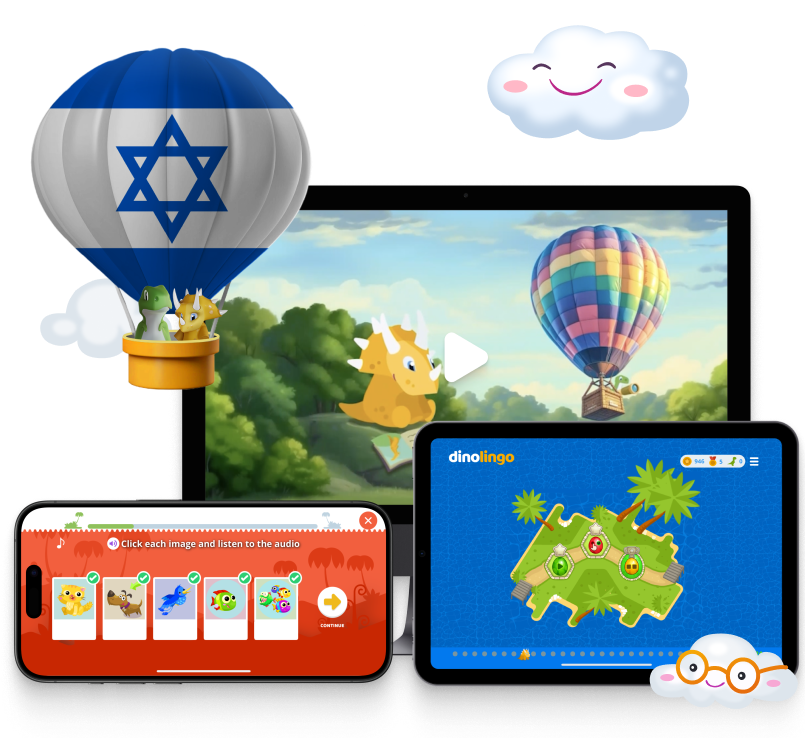A Colorful Journey Through Jewish Food, Music, and Traditions
Food
Some Jewish holidays in Israel are traditionally celebrated with special meals that bring families together to share ancient stories. During Passover, for example, families eat matza, a flat, crispy bread, to remember the hurried escape from slavery in Egypt. On Saturday nights, challah is served—a sweet, braided white bread topped with sesame seeds. Ethiopian Jews make injera, a spongy sourdough bread, while lafa is a large flatbread often filled with meat and salads.
Families from different backgrounds cook dishes inspired by their heritage. Gefilte fish comes from Eastern Europe, while Jews from North Africa prepare spicy dishes using a mix of turmeric, cumin, coriander, and black pepper. These meals are often slow-cooked with garlic, onion, and vegetables. Popular sauces include hilbeh and schug, which add extra flavor to the food.
Some meals are sweet, like tzimmes, a stew made with carrots, beans, potatoes, and dried fruit. Another favorite is ptitim, Israeli pasta shaped like pearls or stars. Shavuot is a holiday where only dairy foods are eaten, including cheese pies, veggie quiches, and pastries.
Pita sandwiches are very popular. Vendors fill them with hummus, falafel, schnitzel, or shawarma, and top them with salad, fries, and sauces like mashed eggplant or pickles.
Clothing
Israel is a modern country where people enjoy fashionable clothing. However, religious traditions still influence how some dress. Orthodox Jewish boys wear a kippah, a small round cap, and girls wear modest clothing with covered shoulders and skirts. Men wear a tallit during prayers, which is a scarf with special knots.
Some traditional garments are long, colorful robes, often decorated with beads. Israeli youth are also often seen in olive green army uniforms, as military service is common for both boys and girls.
Festivals and Holidays
The people of Israel use a lunar calendar, so their New Year, Rosh Hashanah, can fall in different months each year. For this holiday, apples dipped in honey are eaten to wish for a sweet year. Sukkot celebrates the harvest and the journey through the desert by building small shelters decorated with lights and paper crafts.
Hanukkah is a winter holiday that celebrates light and includes delicious jelly-filled doughnuts called sufganiyot. Purim is a carnival-like holiday where people wear costumes, use noisemakers, and give sweet treats to others.
Famous Stories and Epics
Many children in Israel grow up learning stories from the Old Testament and other traditional texts. One well-known story is the Book of Esther, where Queen Esther saves her people from harm. Another is the story of Masada, an ancient fortress where Jewish rebels made a final stand against the Roman Empire.
Children’s Games
Israeli children love to play with marbles, a game called gulot. They draw a circle and try to knock each other’s marbles out of it. Each marble has a name, like drakonit for a striped one, bombila for a big one, and gazozit for one with bubbles.
Communication
Israeli people are often very friendly and open. They speak casually, often calling each other “brother” or “sister.” It is common to speak with hand gestures. One common gesture is holding your fingers together and shaking your hand to say “wait a second.”
Values
Religious traditions are respected across the country. Boys and girls celebrate a special coming-of-age ceremony called Bar or Bat Mitzvah at age 12 or 13. Military service begins at age 18, and young people can serve in many roles, such as teaching, programming, or performing in the military entertainment unit.
Fun Facts
Israel is a small country that can be crossed in about 10 hours. The climate varies greatly, from the snowy Mount Hermon in the north to the warm Red Sea in the south. The Dead Sea, one of the most famous places, is so salty that you can float without trying.
Famous Places
Jerusalem is the capital and one of the most famous cities in the world. It is known for its limestone buildings and ancient Old City, which holds religious and historical sites like the Church of the Holy Sepulchre and the Dome of the Rock.
If you’re looking for a fun and effective way to introduce your child to Hebrew, Dinolingo offers interactive language lessons designed specifically for children aged 2 to 14. With videos, songs, games, stories, and printable flashcards, children can explore the Hebrew language and Israeli culture in an engaging and age-appropriate way. Whether your child is a pre-reader, an elementary school learner, or in middle school, Dinolingo’s platform (available on web, iOS, and Android) supports language development at every stage. You can explore how it works on Dinolingo’s website.
Start Learning a New Language Today!
Best Language App for Kids.
7-day free trial. Then only $19/month. Cancel anytime.


awsome
🙂
So ?, what overnight. I recently finished reading all of the article content that you positioned here when i must declare that this was initially value shelling out a period of time! Boost bookmarks assist long run articles or blog posts!
its very interesting to read about jewish culture and food and their whole background and reading this article just is fun filling
The rooster and dumplings are completely different, but dangerously addictive, with rice dumplings and
spicy gravy.
well thanks for letting me learn something new
This is freakin awesome オス パーキング
Excellent article…. KUDOS:)